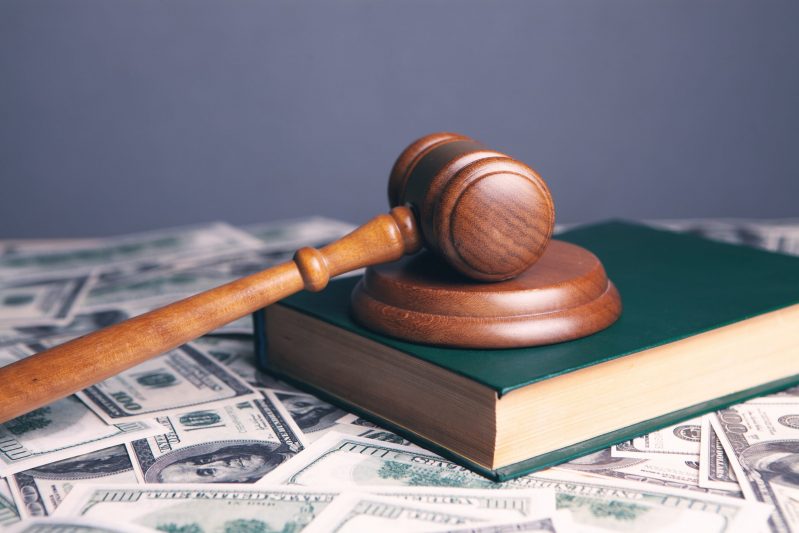
Judges beholden to special interests destroy the rule of law
Op-Ed by Matt Brouillette. This piece originally appeared at RealClear Pennsylvania.
Over recent decades, the judiciary has assumed extraordinary powers. And as the saying goes, with great power comes great … campaign contributions?
“The flow of money into state judicial races has been rising in recent years and shows no sign of slowing down,” the Associated Press reported in 2015. That year, Pennsylvania’s elections for three open state Supreme Court seats set a then-record for campaign spending, with Democratic general election candidates raising more than $11 million to Republicans’ $3.6 million.
The AP noted that a “big chunk” of the money Democrats raised came from trial lawyers and labor unions. Unions contributed nearly $4 million to Democrats, while one trial lawyer political action committee (PAC) alone spent more than $2.5 million. This doesn’t include hundreds of thousands of dollars more from individual trial lawyers and firms.
And while unions gave nearly $4 million to the three Democratic Supreme Court candidates, the three Republicans received less than $70,000.
Even the left-leaning Brennan Center said that the “spending patterns” in the race “suggest that certain groups, such as plaintiff’s attorneys and unions, sought to influence the outcome of this election through their contributions.”
This influence-seeking by unions and the trial bar continued in subsequent judicial races.
In 2017 and 2019, in Pennsylvania’s Superior Court races, trial-lawyer and union PACs donated nearly $1.5 million to Democrats Deborah Kunselman (2017) and Dan McCaffery (2019), according to campaign finance records—representing about 75% of Kunselman and McCaffery’s combined fundraising totals for these elections. Both judges are now running for state Supreme Court.
In the 2021 judicial elections for an open seat on the Pennsylvania Supreme Court, about two-thirds of the nearly $2.9 million in donations to Democratic candidate Maria McLaughlin came from union and trial-lawyer PACs. Comparably, union and trial lawyer PAC donations to Republican Kevin Brobson—who ultimately won the election—amounted to less than $50,000.
Looking down-ballot to the 2021 races for Pennsylvania Superior and Commonwealth Court, the majority of the top 10 respective donors to each of the Democratic candidates were—you guessed it—unions and trial lawyers.
For evidence from outside of Pennsylvania, consider Wisconsin’s recent Supreme Court race, which became the most expensive judicial election in U.S history at more than $45 million. The left-leaning Wisconsin Examiner reported that among the top supporters of winner Janet Protasiewicz were groups funded by labor unions.
And these unions expect a payback. Indeed, in the Wisconsin race, the Left’s campaign wasn’t about upholding the rule of law but about using the court to advance Democrats’ and unions’ progressive agenda on issues including abortion, redistricting, and voter rules.
In Pennsylvania, trial-lawyer-and-union-backed Supreme Court justices have been more than happy to comply with these expectations.
In 2018, for example, the Pennsylvania Supreme Court upheld former governor Tom Wolf’s executive order forcing the unionization of 20,000 Pennsylvania homecare workers. This ruling was a gift to unions, which stood to gain upwards of $8 million annually in dues money.
I was in the courtroom that day, and I knew that homecare workers had lost before the case was even heard. The front row of the court’s gallery was reserved for union leaders, and once they took their seats, the Democratic justices emerged from behind closed quarters to greet, hug, and chum around with their campaign contributors.
In 2022, in a gift to trial lawyers, the Pennsylvania Supreme Court endorsed “venue shopping,” saying that plaintiffs may file malpractice lawsuits in any county in the state, rather than in the county where the alleged offense took place.
Not surprisingly, since this ruling went into effect earlier this year, cases filed in plaintiff-friendly Philadelphia have surged, meaning big payouts for trial lawyers.
And who can forget the state Supreme Court’s 2018 ruling tossing out Pennsylvania’s congressional district map and imposing one of its own? Unions praised this ruling, as it benefited their favored (Democratic) candidates. The Pennsylvania chapter of the American Federation of Teachers, which had filed an amicus brief in the case in support of Democratic plaintiffs, exulted, “WE WON!” in response to the ruling.
This year, voters will again elect judges to Pennsylvania’s Supreme, Superior, and Commonwealth Courts. And unions and trial lawyers will again seek to exert their influence in hopes of obtaining friendly rulings.
As voters head to the polls, they should consider whether the candidates they choose are committed to upholding the rule of law or are beholden to special interests.
# # #
Matthew J. Brouillette is president and CEO of Commonwealth Partners Chamber of Entrepreneurs, an independent, nonpartisan, 501(c)(6) membership organization dedicated to improving the economic environment and educational opportunities in Pennsylvania.
